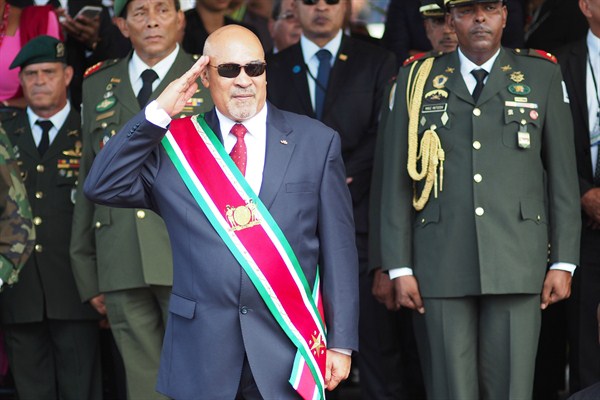Corruption and falling commodities prices have many in Suriname worried that their country is turning into the next Venezuela. Businesses are closing; inflation is rising; and the economy is predicted to contract by 2 percent this year. In an email interview, Robert Looney, distinguished professor in the department of national security affairs at the Naval Postgraduate School, discusses the economic crisis in Suriname.
WPR: What factors are behind the recent economic turmoil in Suriname?
Robert Looney: Suriname’s economy has never been able to break out of the boom-and-bust cycle that afflicts many resource-producing developing countries. The country is almost totally reliant on the revenues generated by gold, oil and bauxite exports. However, during much of the 2000s when these sectors were booming, the government used a large share of the country’s proceeds from commodities to increase public spending on additional employees and wage increases. In addition, during the run-up to the 2015 elections, there was an increase in government spending. Further complicating the government’s fiscal position was the planned reduction in aluminum production by Alcoa, and the relative stagnation of the agricultural sector.

